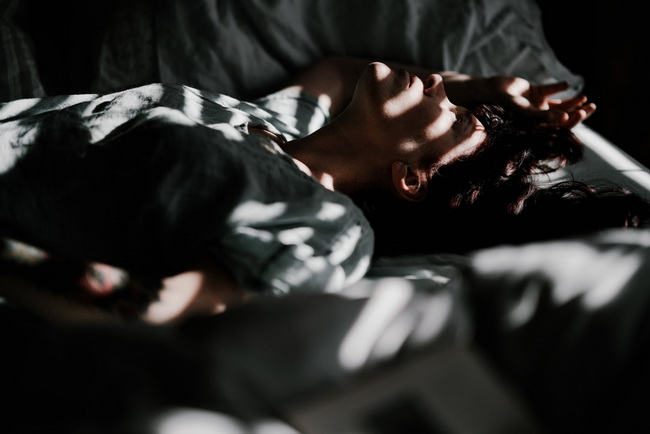Research on how the pandemic is keeping us awake at night is still in its early ages. In fact, scientific studies on this matter can take years to give relevant and more broad data.
Experts found a name for the sleep problems the ongoing global pandemic is causing all of us. They call it “coronasomnia.” How is the pandemic preventing us from getting a good night’s sleep, and what can we do about it? Keep reading below to find out!
Did you have trouble sleeping lately? Maybe you’ve stayed up all night thinking about the troubling times we’re all going through right now. Or maybe you were worried about the wellbeing of your loved ones. Maybe you couldn’t sleep because you’re experiencing financial problems caused by the pandemic. Or maybe the reason why you couldn’t get a good night’s sleep was the fact that you were experiencing restlessness. No matter what kept you awake, find that you’re not the only one who can’t get enough zzz’s.
Among the many disruptions the ongoing COVID-19 pandemic has brought to our lives, insomnia ranks pretty high on the list too. Research on how the pandemic is keeping us awake at night is still in its early ages. In fact, scientific studies on this matter can take years to give relevant and more broad data. Yet, evidence from China, Europe, and the US already suggests that the effects of the pandemic, particularly prolonged confinement, are altering people’s sleep.
“Coronasomnia” a new possible public health threat
It’s early to blame the pandemic for our insomnia entirely. Data suggests that sleep disorders were a problem long before the health crisis our world is dealing with these days. To be more precise, data says that nearly a third of US adults were getting a minimum of seven hours of sleep every night as recommended by the American Academy of Sleep Medicine.
However, since the pandemic has started, the numbers started to become more worrying day by day. Since 2015, the number of prescriptions filled for sleep problems decreased by 11.3%, which sounds like good news. Yet, in only a month from the spread of the virus in the US, between February 16 and March 15, the number increased by 14.8%. That’s according to a report from Expert Scripts.
But that’s not all. A recent study from the Kaiser Family Foundation also brings some bad news: 36% of Americans claim that they had trouble sleeping this summer because of the stress caused by the pandemic.
What’s more, even though people are sleeping more during the pandemic, thanks to lockdown and other restrictions that eliminated most of our everyday activities, the sleep quality is declining rapidly, according to another recent study.
“Coronasomnia,” as some experts call our troubles sleeping caused by the pandemic, is caused by a series of effects that came along with the global pandemic, like anxiety, money problems, health worries, confusion, uncertainty, lack of socialization, and many others.
But, you likely know what’s keeping you awake at night. The real question is, how do you get the zzz’s? Keep reading below to find out some tips on overcoming insomnia caused by the pandemic and its effects.
3 tips to sleep better
Even with a global pandemic happening, some of our needs don’t change. Sure, you can get over not dining out every night or not watching the latest released movies at the cinema. But, you can’t get over not having enough sleep.
Sleep is essential for both your mental and physical health and wellbeing. And, with a dangerous virus threatening our health, it’s more important than ever before to keep ourselves healthy. How do you combat insomnia and get a good night’s sleep?
1. Get rid of stress and anxiety
Easier said than done. We get that. But stress is one of the most common causes of sleepless nights. So, if you don’t find a way to decrease stress and anxiety levels, not only that you may not get enough sleep, but even when you do fall asleep, the quality of it will be really poor because stress can also present itself in the form of nightmares.
So, how do you get rid of stress? There are plenty of stress managing strategies you can use to calm down before going to bed, from meditating to talking about your feelings, exercising, and socializing with loved ones. Try all of these strategies and see what helps you best.
2. Keep technology out of the bedroom
Scrolling down on social media before falling asleep doesn’t seem like something that can affect your sleep quality or keep you awake. But guess what? It does. The blue light from the devices has been found to affect your ability to fall asleep faster.
What’s more, since you have your smartphone, laptop, or tablet, you may be tempted to read the news one more time before going to sleep. With everything happening right now around the world, the chances are that seeing more news won’t help you relax and have a good night’s sleep. So, keep technology out of the bedroom so that you can disconnect for a while.
3. Improve your bedroom environment
Your bedroom environment has a huge influence on your sleep quality. Everything, from room temperature to the amount of light and how comfortable your mattress feels, can impact how well you sleep.
We recommend keeping your room cool as it will help you fall asleep faster. Also, invest in a mattress and pillows that will support your neck and spine and feel comfortable. What’s more, make sure your bedroom is dark so that no light can disturb your sleep.
Photo by Annie Spratt on Unsplash








































































































































































